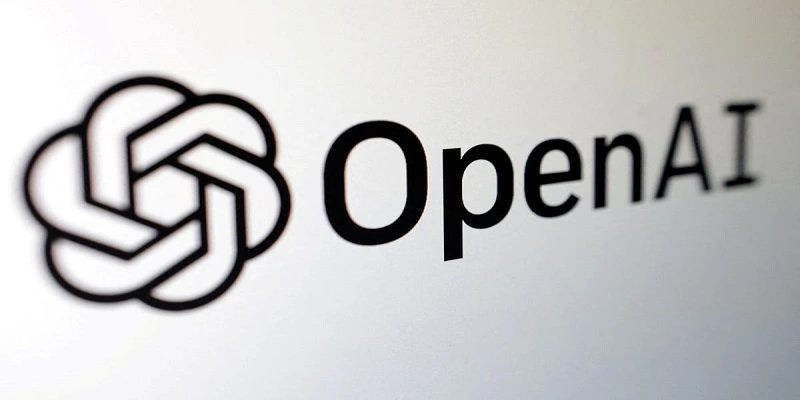OpenAI's Voice Cloning Revolution, 15 Seconds is All It Takes
Imagine a world where replicating someone's voice is as simple as recording a short snippet of their speech. This isn't science fiction anymore. OpenAI's groundbreaking voice cloning AI model has achieved precisely that, shattering the limitations of voice synthesis. With a mere 15-second audio sample, this technology can create eerily realistic replicas of a person's voice, complete with intonations, accents, and even emotional nuances.
This innovation carries immense potential across various industries. Let's delve into the exciting possibilities and explore the implications of this powerful tool.
The Power of 15 Seconds: Unlocking a World of Applications
The ability to clone voices with such brevity opens doors to a multitude of applications. Here are some prominent examples:
- Accessibility for Text-to-Speech: Individuals with speech impediments or those who have lost their voices can regain the power of communication through synthetic voices that perfectly mimic their natural tone. This can be a life-changing advancement for those who rely on text-to-speech technology.
- Personalized Customer Service: Imagine a future where customer service interactions are enhanced by AI agents that sound exactly like the company representative you're trying to reach. This personalized touch could revolutionize customer experience, fostering trust and a sense of connection.
- E-Learning and Education: Educational tools can leverage voice cloning to create immersive learning experiences. Imagine historical figures narrating their own stories or language learning apps that provide personalized pronunciation feedback in a student's native voice.
- Entertainment and Media: The ability to clone voices opens a new realm of possibilities in the entertainment industry. Actors can lend their voices to different characters without needing to record individual lines. Voiceovers in films and documentaries can be tailored to specific languages or regions with ease. The possibilities for creative storytelling are vast.
- Content Creation and Audiobooks: Authors and content creators can leverage voice cloning to bring their work to life with realistic narration. Imagine listening to an audiobook narrated by the author's own voice, adding a new layer of connection and authenticity to the experience.
Beyond the Applications: Ethical Considerations and Potential Concerns
While the potential benefits of OpenAI's voice cloning technology are undeniable, ethical considerations and potential misuse cannot be ignored. Some key concerns include:
- Deepfakes and Voice Impersonation: Malicious actors could use this technology to create deepfakes, spreading misinformation or impersonating others for nefarious purposes. Robust verification systems and clear regulations will be crucial to mitigate this risk.
- Privacy and Consent: The ability to clone voices raises questions about privacy and consent. Clear guidelines must be established regarding the collection, storage, and use of voice samples.
- Ownership and Attribution: As synthetic voices become more commonplace, issues of ownership and attribution will arise. Who owns the rights to a cloned voice, and how will creators be credited for their work?
The Road Ahead: Responsible Development and Collaborative Efforts
OpenAI's voice cloning technology presents a powerful tool with immense potential for positive change. However, responsible development and collaborative efforts are essential to navigate the ethical considerations. Open discourse and collaboration between developers, policymakers, and the public are crucial to ensure this technology is used ethically and responsibly.
Here are some potential steps to ensure responsible development:
- Transparency and Open Access: OpenAI and other developers of voice cloning technology should strive for transparency in their algorithms and development processes. Open access to research findings can foster collaboration and identify potential risks early on.
- Regulation and Oversight: Governments and regulatory bodies need to establish clear guidelines regarding the collection, use, and distribution of voice samples. This will help prevent misuse and protect privacy rights.
- Education and Awareness: Public awareness campaigns can educate the public about the capabilities and limitations of voice cloning technology. This can help mitigate the spread of misinformation and encourage responsible use.
A Powerful Tool for the Future
OpenAI's voice cloning technology marks a significant leap forward in the field of artificial intelligence. With its ability to create realistic voice replicas from a mere 15-second sample, the potential applications are vast and exciting. However, it's crucial to acknowledge and address the ethical concerns surrounding this powerful tool. By fostering open dialogue, implementing regulations, and prioritizing responsible development, we can ensure that voice cloning technology serves as a force for good, driving innovation and progress across various fields.
- Technical Deep Dive:Briefly explain the underlying technology behind OpenAI's voice cloning model. This could involve discussing concepts like machine learning, deep learning, and audio processing.
- Comparison with Existing Technologies: Compare OpenAI's model with existing voice cloning technologies. Highlight the advantages of the 15-second sample requirement
Comparison with Existing Technologies: 15 Seconds is the New Game Changer
While voice cloning technology has existed for some time, OpenAI's model boasts a significant advantage: the incredibly short sample requirement. Existing technologies often require much longer audio clips, sometimes minutes, to generate a usable voice clone. This can be cumbersome and limits the potential applications.
The 15-second approach unlocks a new level of accessibility and ease of use. It opens doors for scenarios where capturing longer voice samples might be impractical or impossible. This could be particularly valuable in areas like creating personalized AI assistants or incorporating historical figures' voices into educational materials.
In essence, OpenAI's innovation represents a major leap forward in voice cloning technology, making it faster, more efficient, and potentially more impactful across various industries.
RESENT POSTS
- EU AI Act: All the information you require
- Google Launches Gemini AI for Video Creation and Editing Presentations
- The AI-powered app integration platform UnifyApps acquires $20 million from ICONIQ Growth
- open-ai launches searchgpt to Take on Google
- NIST releases a risk assessment tool for AI models.
- The Complete Guide to Improve Local Rankings with Google Local Pack
- OpenAI's Voice Cloning Revolution, 15 Seconds is All It Takes
- The Curtain Closes on Google Podcasts, Migrating to YouTube Music

